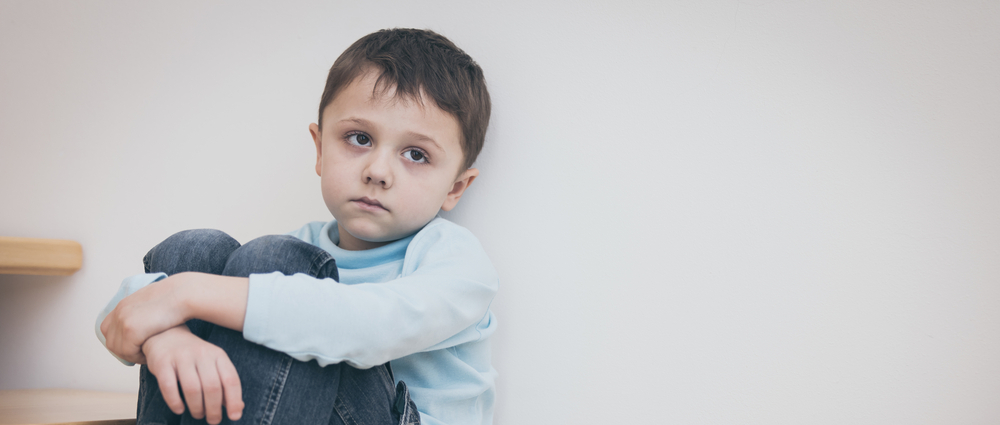How to Correct Our Children’s Mistakes?
This answer is a transcript of an answer given by Shaykh Faraz Rabbani during a live Q&A session at the end of the Critical Issues Seminar “What Your Child Needs: A Parent’s Guide to Islamic Education” held in the SeekersGuidance HQ in Mississauga, Canada on 2022/02/22.
Question
Is it ok to correct your child who is already quite well educated in deen?
Answer
In the Name of Allah, the Most Beneficent, the Most Merciful.
Empowering through Counselling
The first thing to consider is the purpose of correcting is not merely to correct. The main aim of correction is to raise consciousness among children to make the right choices in the future. For instance, if we look at an example of the Prophet (Allah bless him and give him peace) when he was married to Umm Salama (Allah be pleased with her) who had a young son named Umar Ibn Abi Salamah (Allah be pleased with him). In one instance, Umar (Allah be pleased with him) attacked food from all sides in the rush of hunger and without reciting Bismillah.
The Prophet (peace and blessings be upon him) instead of pointing out the mistakes counseled the kid and taught him the right manner of eating the food:
- To start with the name of Allah Most High and
- eat with his right hand
- from what is in front of him.
This example helps one understand that correcting must not be merely for the sake of criticism rather as demonstrated in this hadith is a process of empowering and directing the child in the right direction.
Positive Reminders
Secondly, we all benefit from positive reminders. Our religion is sincere concern and counsel. We care about the good of one another and are expected to pick the right time to counsel our children to see the positive change. For example, sometimes we witness children indulged in certain activities which need correction but one needs to be aware of whether the timing is right. Like your son is eating a burger in hurry, or playing, or insisting on a particular thing. At such moments, one should understand and realize whether the children will listen because of their indulgence and focus on the activity itself. Hence, it is inevitably important to pick the right time for the counsel of our children.
Choosing the Right Battle
Relationships are also based on knowing which battles to lose because certain things are not just a matter of right and wrong. You know your daughter excessively slouches but is it that slouching is haram or disliked. We should counsel for the action that needs correction.
Companions asked the Prophet (Allah be pleased with them) questions about religious practice and there is nothing wrong in correcting our children. The key is to pick the right time and right way to turn this engagement in favor of our children even if they already know more and know what is the right thing to do.
Learning Through Children
Another important aspect related to this question is learning from our own children. Sometimes children identify our mistakes and we should not shut them out just because we are parents. As a parent myself, I need to see these moments as a blessing for the hard work that as parents you have invested all these years that is finally coming back to you. Our religion is to give sincere counsel to whosoever needs it and take sincere counsel from whosoever that comes from.
Moment of Choice
It is indeed a choice moment when your children can point out your mistakes and compare them with your own teachings, manners, and principles. This moment is to get one to stop and reflect on oneself. Words hit you the most when it comes from your own children because they understand what you have been teaching and if there is anything they witness in their parents that contradicts their teachings and they seek clarification.
It is a positive wake-up call in this world that your mistakes are identified by children. This is the moment one should reflect on one’s own conduct and be grateful that it is an opportunity to refine ourselves to be better.
Conclusion
To conclude, instead of asking for explanations and identifying faults one should choose the path for correction through sincere counsel. The Prophet (Allah bless him and give him peace) neither sought an explanation nor identified the faults of young Umar (Allah be pleased with him) or any of his companions. Like the beloved Prophet (Allah bless him and give him peace) we should be positive about the reminders and not choose to be accusative and blameworthy. There are better ways to talk, correct and counsel the children if they make any mistakes. Surely, We can frame it much more positively and achieve better results by framing it that way.
[Shaykh] Faraz Rabbani
Shaykh Faraz Rabbani spent ten years studying with some of the leading scholars of recent times, first in Damascus, and then in Amman, Jordan. His teachers include the foremost theologian of recent times in Damascus, the late Shaykh Adib al-Kallas (may Allah have mercy on him), as well as his student Shaykh Hassan al-Hindi, one of the leading Hanafi fuqaha of the present age. He returned to Canada in 2007, where he founded SeekersGuidance in order to meet the urgent need to spread Islamic knowledge–both online and on the ground–in a reliable, relevant, inspiring, and accessible manner. He is the author of: Absolute Essentials of Islam: Faith, Prayer, and the Path of Salvation According to the Hanafi School (White Thread Press, 2004.) Since 2011, Shaykh Faraz has been named one of the 500 most influential Muslims by the Royal Islamic Strategic Studies Center.
What Your Child Needs: A Parent’s Guide to Islamic Education
